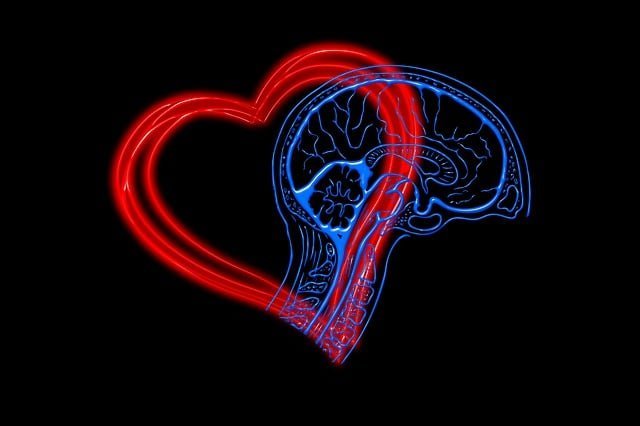
First we must admit to ourselves that self-doubt is happening.
Self-doubt, that powerful hindrance to personal growth and fulfillment of our true potential, is a topic that I, an experienced blogger, mother, wife, and individual with various interests and hobbies, can empathize with deeply. In this comprehensive article, we will take an in-depth exploration into the intricacies of self-doubt, examining its telltale signs and symptoms while delving into its underlying causes. By gaining a profound understanding of self-doubt and its origins, we can then equip ourselves with the necessary tools to effectively address this internal struggle, cultivating a mindset that is not only healthier but also imbued with immense confidence.
Recognizing Self-Doubt:
To effectively recognize and address self-doubt, one must possess a deep understanding of oneself. This involves being highly self-aware and actively examining one’s thoughts, emotions, and actions to identify any instances of self-doubt that may arise. In order to fully grasp the concept of self-doubt, it is crucial to be attentive to the numerous indicators or signals that could serve as clues. By paying close attention to these signs, individuals can gain a clearer picture of their own internal struggles and begin the process of overcoming self-doubt. Taking the time to introspect and reflect on one’s beliefs and behaviors is essential for unraveling the complexities surrounding self-doubt.
- Negative Self-Talk refers to the consistent habit of criticizing oneself and adopting negative phrases such as “I’m not capable enough” or “I cannot accomplish it.” This pattern of thinking indicates a pessimistic view of oneself and can have detrimental effects on your mental health.
- Fear of Failure can be a significant hindrance that prevents individuals from stepping out of their comfort zones and pursuing new or unexplored opportunities. This excessive fear acts as a barrier, keeping people stuck in familiar, safe routines.
- Perfectionism refers to the tendency of setting standards that are unreasonably high and experiencing a sense of disappointment when those standards are not met. This inclination can result in a constant detrimental state of self-doubt.
- Procrastination, a common phenomenon in which individuals put off or avoid tasks, is frequently driven by a fear of not being able to fulfill them to their desired level of satisfaction. This fear is usually deeply rooted in self-doubt, causing individuals to question their abilities and competence in accomplishing the given tasks. Consequently, they tend to delay or avoid taking action, hoping to find a more opportune moment.
- Validation: Relying heavily on seeking validation from others to enhance one’s self-worth can be seen as a possible indicator of underlying insecurity that is deeply rooted within a person’s psyche. This behavior suggests that individuals may struggle with their own self-assurance and confidence, seeking external approval as a way to compensate for their lack of self-confidence.
Potential Causes of Self-Doubt:
- Childhood experiences have a profound impact on the formation of our self-perception and beliefs. When children are subjected to excessive criticism or constantly compared to others, it can have long-lasting effects on their self-confidence and self-esteem as they grow older. These negative experiences can create a strong sense of self-doubt, making it challenging for individuals to trust in their abilities and feel secure in their knowledge and experience.
- Traumatic occurrences that have taken place in the past, such as moments of disappointment, being turned down, or experiencing emotional mistreatment, have the ability to significantly influence an individual’s perception of their own worth and provoke persistent feelings of hesitation and lack of confidence. These deeply ingrained emotions can have lasting effects, impacting various aspects of one’s life and creating an ongoing state of uncertainty and self-doubt.
- Negative Feedback: Experiencing repeated instances of negative feedback or enduring persistent bullying can profoundly affect an individual’s sense of self-worth and self-assurance, gradually eroding their confidence in their own abilities and diminishing their belief in themselves. This not only has a detrimental impact on their emotional well-being but also extends to various aspects of their life, including relationships, academic or professional performance and their own self-care.
- Unrealistic Expectations: Growing up in a setting where the expectations placed upon individuals are incredibly unrealistic can have detrimental effects on one’s emotional well-being and self-confidence. These expectations, whether they come from parents, peers, or society as a whole, tend to be unattainable and leave individuals feeling as if they are not up to par with everyone else.
- Imposter Syndrome, also known as the imposter phenomenon, refers to a psychological pattern in which individuals experience self-doubt about their capabilities and constantly worry about being exposed as frauds. It is a cognitive bias that can have a significant impact on one’s mental well-being and overall success. People afflicted with this syndrome often downplay their accomplishments or give credit to other parties for their work.
- Social Comparison, a common behavior that many of us participate in, refers to the ongoing process of continually assessing ourselves in comparison to others, especially in the context of social media. This inclination to compare ourselves with others can lead to overpowering feelings of inadequacy and dissatisfaction with ourselves. It is a human tendency to constantly evaluate our worth in relation to our peers and acquaintances, which becomes even more pronounced when one is dealing with a crippling bout of self-doubt.
- Fear of Being Judged: The fear of being evaluated or condemned by others can have a profound impact on one’s self-confidence and willingness to step out of their comfort zone. This fear can generate doubt within ourselves and deter us from embracing new opportunities or taking risks that could open new doors to experiences that would otherwise allow us to flourish and grow as a person.
- Lack of Positive Reinforcement: Growing up without receiving enough positive reinforcement and encouragement can significantly impede the growth and development of an individual’s self-confidence. Lack of positive feedback and support during the formative years can create a life-long sense of self-doubt in our own innate abilities and skills.
- Internalized Criticism: When we internalize negative feedback or judgments from others, it has the potential to give birth to an incessant self-critical inner voice that continually nurtures our self-doubt. This internal process involves the incorporation of external criticisms into our own self-perception, leading to a persistent cycle of self-criticism and negative self-talk. Our perceived failures become a self-fulfilling prophecy, a cycle that endures until we fully understand how and why it is happening.
- Feeling Unprepared: In professional or academic settings, it is not uncommon for individuals to experience self-doubt due to a sense of unpreparedness or inadequate skills and knowledge in a particular field. This deficiency in expertise can strongly contribute to eroding their confidence. Such situations occur when individuals find themselves confronted with challenging circumstances that require them to demonstrate their abilities.
Conclusion:
Embarking on a journey of personal growth and developing increased self-confidence involves a profound exploration of self-doubt and its underlying causes. This transformative process requires nurturing self-awareness, challenging negative thought patterns, and delving into the root sources of self-doubt. By fully immersing ourselves in the process of self-discovery, we can gradually diminish the grip that self-doubt holds over our lives. It’s important to remember that overcoming self-doubt is an ongoing endeavor that demands continuous effort. However, by persistently working on this journey, we can cultivate a stronger sense of self-assurance and achieve success in various aspects of our lives.









